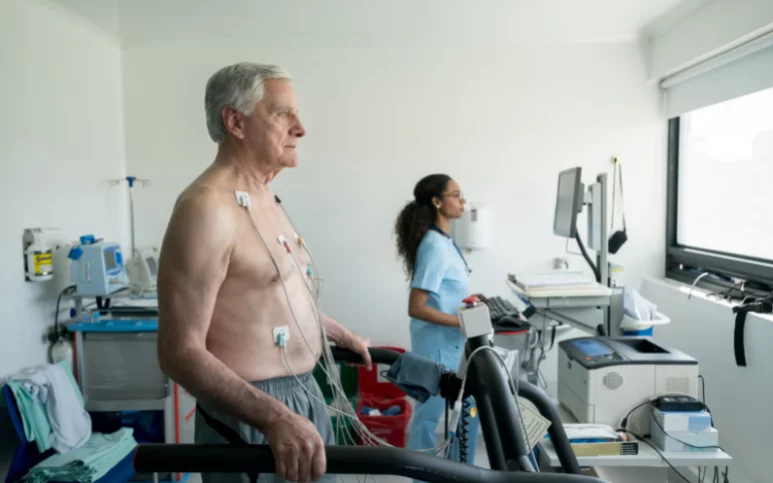
The exercise stress test is a medical procedure that assesses how well your heart works as you exercise. It entails using a treadmill while attached to an electrocardiogram (ECG) device that measures the electrical activity of your heart.
The heart has to pump more blood during the exercise test because your body is working harder and using more oxygen. The test can reveal whether the blood arteries supplying the heart have less blood flow. The doctor can analyze your general level of fitness with the aid of an exercise stress test, which can also assist them to choose the best kind and intensity of exercise for you.
There are several reasons why a doctor may recommend an exercise stress test:
- To evaluate symptoms: If you have symptoms such as chest pain or shortness of breath, an exercise stress test can help your doctor determine if your symptoms are related to a heart condition.
- To assess risk: If you have risk factors for heart disease, such as high blood pressure or high cholesterol, an exercise stress test can help your doctor evaluate your risk of developing heart disease.
- To monitor treatment: If you have a known heart condition, an exercise stress test can help your doctor monitor the effectiveness of your treatment.
Overall, exercise stress tests are considered a relatively accurate diagnostic tool for detecting heart disease and evaluating cardiovascular fitness. The accuracy of stress echocardiography aka “stress echo” for detection of significant coronary stenoses ranges up to 90%, exceeding that of the regular exercise test. It’s important to discuss the results of your exercise stress test with your doctor to determine the next steps in your care plan.



